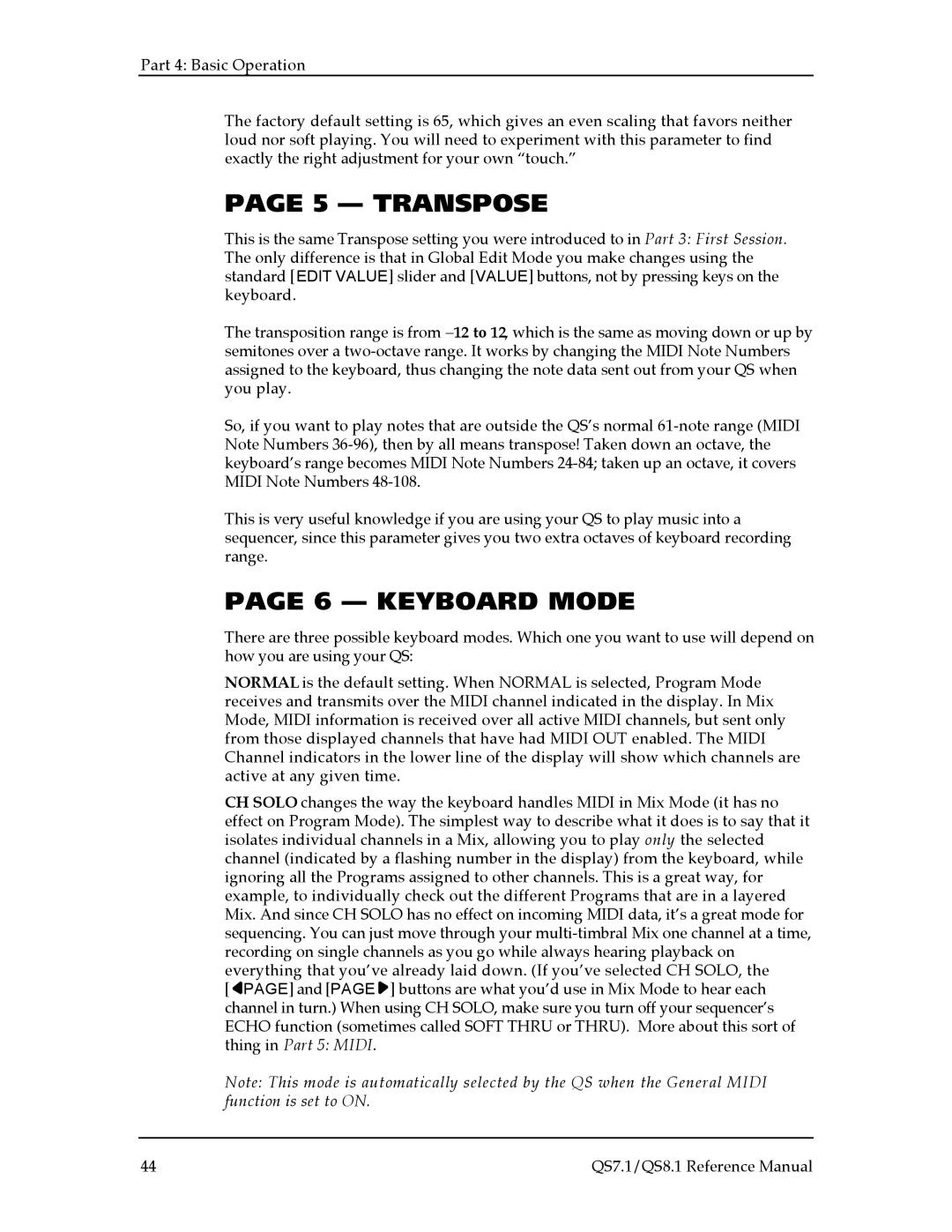
Part 4: Basic Operation
The factory default setting is 65, which gives an even scaling that favors neither loud nor soft playing. You will need to experiment with this parameter to find exactly the right adjustment for your own “touch.”
PAGE 5 — TRANSPOSE
This is the same Transpose setting you were introduced to in Part 3: First Session. The only difference is that in Global Edit Mode you make changes using the standard [EDIT VALUE] slider and [VALUE] buttons, not by pressing keys on the keyboard.
The transposition range is from
So, if you want to play notes that are outside the QS’s normal
This is very useful knowledge if you are using your QS to play music into a sequencer, since this parameter gives you two extra octaves of keyboard recording range.
PAGE 6 — KEYBOARD MODE
There are three possible keyboard modes. Which one you want to use will depend on how you are using your QS:
NORMAL is the default setting. When NORMAL is selected, Program Mode receives and transmits over the MIDI channel indicated in the display. In Mix Mode, MIDI information is received over all active MIDI channels, but sent only from those displayed channels that have had MIDI OUT enabled. The MIDI Channel indicators in the lower line of the display will show which channels are active at any given time.
CH SOLO changes the way the keyboard handles MIDI in Mix Mode (it has no effect on Program Mode). The simplest way to describe what it does is to say that it isolates individual channels in a Mix, allowing you to play only the selected channel (indicated by a flashing number in the display) from the keyboard, while ignoring all the Programs assigned to other channels. This is a great way, for example, to individually check out the different Programs that are in a layered Mix. And since CH SOLO has no effect on incoming MIDI data, it’s a great mode for sequencing. You can just move through your
[![]() PAGE] and [PAGE
PAGE] and [PAGE![]() ] buttons are what you’d use in Mix Mode to hear each channel in turn.) When using CH SOLO, make sure you turn off your sequencer’s ECHO function (sometimes called SOFT THRU or THRU). More about this sort of thing in Part 5: MIDI.
] buttons are what you’d use in Mix Mode to hear each channel in turn.) When using CH SOLO, make sure you turn off your sequencer’s ECHO function (sometimes called SOFT THRU or THRU). More about this sort of thing in Part 5: MIDI.
Note: This mode is automatically selected by the QS when the General MIDI function is set to ON.
44 | QS7.1/QS8.1 Reference Manual |
